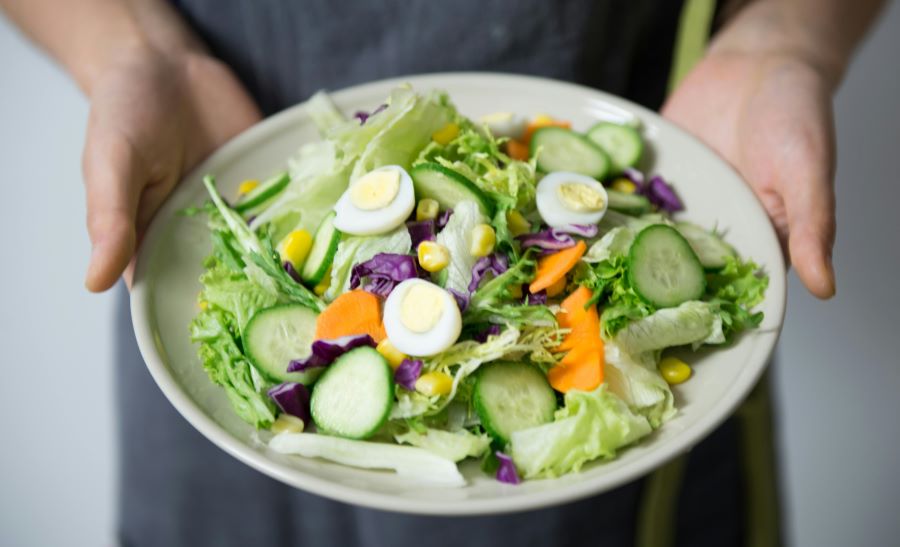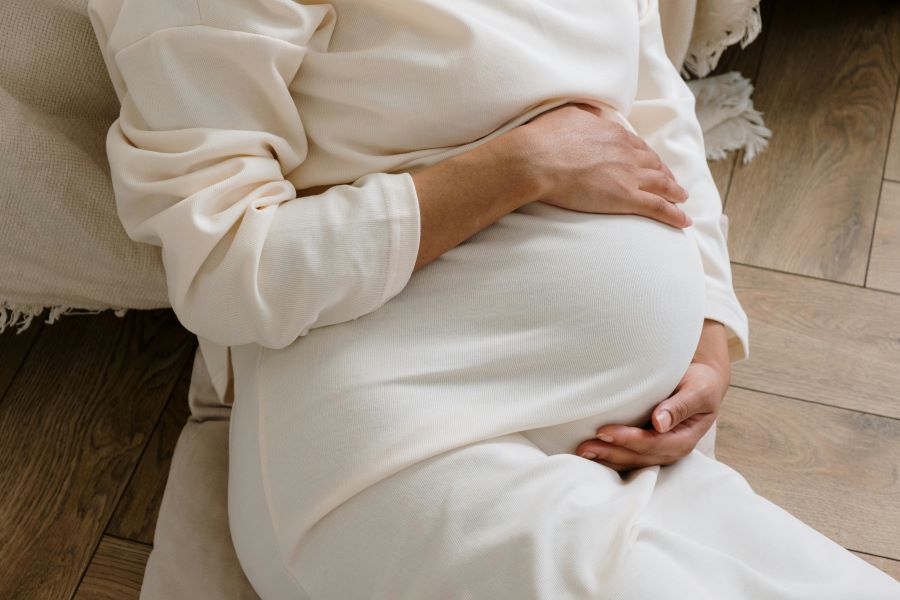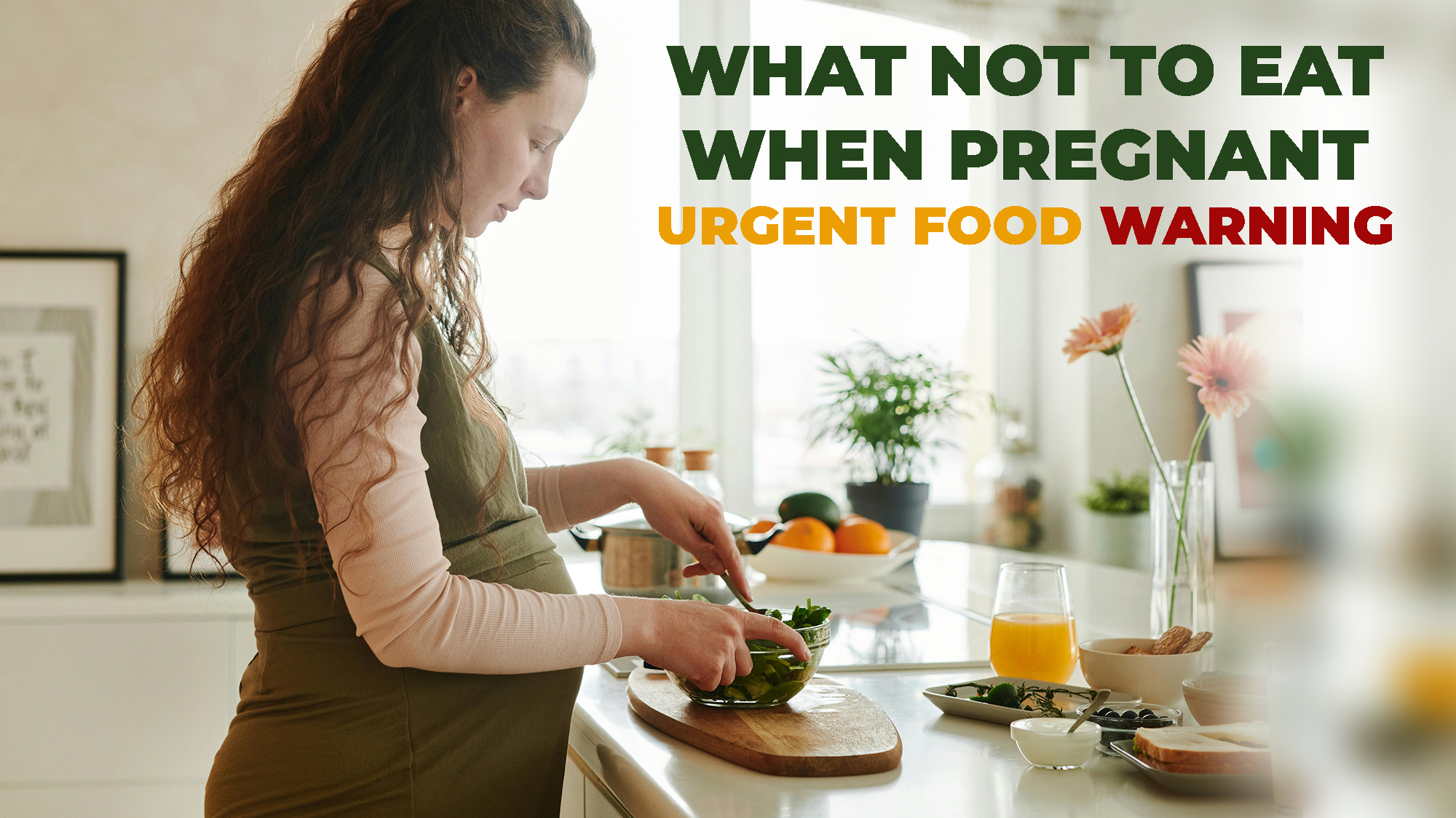Pregnancy is one of those life seasons that changes everything—how you think, feel, sleep, and especially how you eat. If you’re staring at a plate wondering “Can I still eat this?”, you are not alone. The phrase what not to eat when pregnant pops up in every doctor’s visit, every Google search, and even in late-night conversations with your mom. It’s more than just a food list—it’s about caring for two lives now.
In this warm and easy-to-follow guide, readers will find practical advice on what to skip on the menu during pregnancy. From soft cheeses to undercooked meats, we’ll cover the most essential facts in a way that feels more like chatting with a friend than reading a medical journal.
Raw And Undercooked Foods: Hidden Dangers On Your Plate
Imagine craving sushi or a medium-rare burger, only to find out they’re not the best choices right now. During pregnancy, the immune system gets a bit slower, making it easier for certain bacteria and parasites to sneak in. Foods not to eat when pregnant often include raw fish, rare meats, and even runny eggs.
Undercooked meat might carry toxoplasmosis or Listeria—both of which are linked to complications in pregnancy. Raw eggs can carry Salmonella, which might cause serious food poisoning. It’s hard to avoid your usual favorites, especially when you’re tired and hungry. But knowing why helps. Think of your baby as a tiny roommate—one who’s still learning how to protect themselves.

For those living in warmer places like Dhaka or Jakarta, raw street food can be particularly tempting. But it’s best to skip them for now. These foods may not be regulated or stored safely in extreme heat.
If you’re wondering what not to eat when pregnant first trimester, this is a critical area. The baby’s organs are forming rapidly, and foodborne illnesses at this stage could cause complications.
A good rule? If it’s raw, rethink it. Cook meats until they’re no longer pink, boil eggs until both the white and yolk are firm, and skip the homemade mayo.
High-Mercury Fish: A Silent Threat From The Sea
Fish is usually a good thing—it’s packed with protein and omega-3s. But certain types of fish contain high levels of mercury, a heavy metal that can affect your baby’s developing brain and nervous system. That’s why what not to eat when pregnant list often starts with fish like shark, swordfish, king mackerel, and tilefish.
Eating high-mercury fish even once a week can pose risks during pregnancy. Mercury builds up in the body, and babies are especially vulnerable. Instead, aim for low-mercury alternatives like salmon, tilapia, or sardines. They offer the benefits without the baggage.
For those in coastal regions like Chattogram or Kerala where seafood is a big part of the diet, this may feel like a loss. But switching to safer fish choices is still satisfying. Grilled sardines or baked tilapia can make a cozy and nutritious meal.
Remember, the goal isn’t to stress about every bite. It’s about learning what to avoid so your baby’s development gets the best start.
Unpasteurized Dairy And Juices: The Cold Facts
That cold glass of fresh farm milk or that creamy soft cheese from the farmer’s market? They may seem harmless, but they’re part of the group of foods not allowed to eat while pregnant for one big reason—unpasteurized products can carry harmful bacteria.
Listeria is the biggest concern here, and it can cause miscarriage, premature birth, or serious illness in newborns. Soft cheeses like brie, camembert, and queso fresco are best avoided unless they clearly state they are pasteurized. The same goes for fresh-pressed juices that aren’t treated.
For those who love traditional drinks like raw sugarcane juice or homemade lassi, it’s better to switch to pasteurized alternatives during this season.
One easy tip: read labels carefully. When in doubt, ask your healthcare provider. The extra step can make all the difference.
Caffeine And Alcohol: Think Before You Sip
A cup of coffee can feel like a lifeline when you’re dragging through the day. But when it comes to what are you not allowed to eat when pregnant, caffeine and alcohol always make the list.
Caffeine crosses the placenta and can affect your baby’s heart rate and growth. The general guideline is to keep it under 200 mg per day—about one 12-ounce cup of coffee. Tea, cola, and even chocolate also contain caffeine, so they count toward your daily limit.
As for alcohol, it’s a no-go. Studies have linked alcohol use during pregnancy to Fetal Alcohol Spectrum Disorders (FASD), which cause developmental and behavioral problems.
If you’re attending a social event in places like Dhaka or Sylhet where tea or festive drinks are part of the culture, go for herbal teas that are pregnancy-safe. Or sip on sparkling water with lime—it looks just as fancy and keeps you in the safe zone.
Processed Foods And Excess Sugar: Empty Calories, Real Risks
Pregnancy cravings are real—sometimes all you want is a packet of chips or a spoonful of chocolate spread. But a diet high in processed foods and added sugars isn’t ideal for you or your baby.
Many foods not to eat while pregnant fall into this category: instant noodles, sugary cereals, fried snacks, and fizzy sodas. These can lead to excessive weight gain, gestational diabetes, and nutrient deficiencies.
Instead of skipping snacks altogether, choose healthier swaps. A bowl of yogurt with honey and nuts can replace ice cream. Or roasted peanuts instead of deep-fried chips.
The truth is, processed foods don’t give your baby the building blocks they need. Think of every bite as a gift to their tiny, growing body.
Real Talk: It’s Okay To Not Know Everything
Let’s be real—pregnancy can feel overwhelming. You’re Googling what not to eat when pregnant at midnight, staring at your plate wondering if a slice of cheese can actually cause harm. And every other person—your aunt, neighbor, even the cab driver—has an opinion.
That pressure? It’s real.

But here’s something not enough people say: you’re doing your best, and that’s enough.
No one hands you a manual when you get that positive test. You’re learning as you go, making decisions with love, fear, and hope all rolled into one. And honestly? That’s what makes you a good mom already.
You don’t have to eat perfectly. You don’t have to memorize every single food on the what not to eat when pregnant list. You just need to care—and clearly, you do if you’re reading this.
So take a breath. Let yourself mess up sometimes. Talk to your doctor. Cry if you need to. Eat the soup instead of the salad if it gives you peace of mind. And remember: every choice you make from here on out, no matter how small, is shaping a story that’s bigger than both of you.
FAQs
1. What not to eat when you’re pregnant if you have morning sickness?
Stick to bland foods like toast or rice and avoid greasy or spicy meals. Peppermint tea and small, frequent meals may help too.
2. Can I eat sushi during pregnancy?
It’s best to avoid raw sushi due to the risk of parasites and bacteria. Cooked sushi options, like tempura rolls, are safer.
3. What to eat and what not to eat when pregnant in the first trimester?
Eat whole grains, lean proteins, and fresh fruits. Avoid unpasteurized dairy, raw seafood, and high-mercury fish during this time.
4. Is it okay to drink herbal tea during pregnancy?
Some herbal teas like ginger and peppermint are fine, but others may not be safe. Always check with a healthcare provider.
5. What foods not to eat when pregnant with gestational diabetes?
Avoid high-sugar foods like cakes, soft drinks, and white bread. Opt for fiber-rich veggies and lean proteins instead.
Final Thoughts
Pregnancy isn’t about being perfect—it’s about being informed. Knowing what not to eat when pregnant doesn’t mean missing out. It means you’re choosing love in every meal. Skipping certain foods might feel hard in the moment, but the trade-off is a stronger, safer start for your baby.
There’s no shame in asking questions, checking labels, or swapping out your favorites. That’s what responsible care looks like. Whether you’re in your first trimester or just weeks away from meeting your baby, making thoughtful food choices matters.

